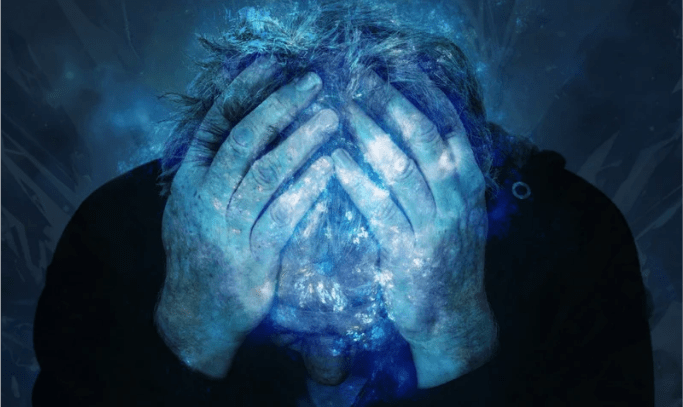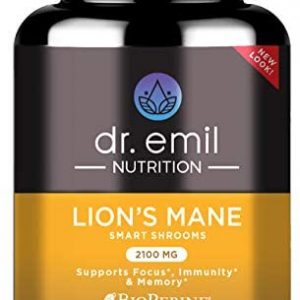
According to the Anxiety and Depression Association of America, anxiety disorders are the most common mental health concern in the United States. Over 40 million adults in the U.S. (19.1%) have an anxiety disorder. Meanwhile, approximately 7% of children aged 3-17 experience issues with anxiety each year. Most people develop symptoms before age 21.
Addictions can destroy marriages, friendships, and careers and threaten a person’s basic health and safety. Almost 21 million Americans have at least 1 addiction, yet only 10% of them receive treatment. Drug overdose deaths have more than tripled since 1990.
It’s estimated that 16.2 million adults in the United States, or 6.7 percent of American adults, have had at least one major depressive episode in a given year.
With the arrival of Covid-19, these problems are becoming even worse. According to a recent study, “The Implications of COVID-19 for Mental Health and Substance Use,” by Nirmita Panchal , Rabah Kamal , Cynthia Cox and Rachel Garfield,
“The COVID-19 pandemic and the resulting economic recession have negatively affected many people’s mental health and created new barriers for people already suffering from mental illness and substance use disorders.”
The study goes on to say,
“As the pandemic wears on, ongoing and necessary public health measures expose many people to experiencing situations linked to poor mental health outcomes, such as isolation and job loss.”
Not only more people suffering from the physical and emotional effects of Covid-19, but more and more people are leaving the field. A recent article by Ed Yong, “Why Health Care Workers Are Quitting in Droves,” says,
“About one in five health-care workers has left their job since the pandemic started.”
Health care workers are stressed out and stretched too thin. Mental Health America reports that
“93% of health care workers were experiencing stress, 86% reported experiencing anxiety, 77% reported frustration, 76% reported exhaustion and burnout, and 75% said they were overwhelmed.”
All of this is going on at a time when our whole approach for understanding “mental illness” is being questioned.
Problems of Living or Mental Illness?
In 1965 I made a decision that changed my life. I had graduated from U.C. Santa Barbara and started medical school at U.C. San Francisco. I thought medicine was my future and I had hoped that I would learn the secrets that would help me understand why my father had become increasingly anxious, depressed, and eventually took an overdose of sleeping pills and was committed to Camarillo State Mental Hospital. When it became clear that the medical education at the time was too narrow and restrictive, I left and went to U.C. Berkeley’s school of Social Welfare.
In the three years until I graduated I received a broad education that included working with individuals, families, groups, and community organizations. I also learned about diagnosing mental disorders and was required to purchase my first “Diagnostic and Statistical Manual of Mental Disorders (DSM)” published by the American Psychiatric Association.
The first edition came out in 1952 and had 128 categories of illnesses, none of which helped me understand what happened to my father or helped me make sense of how I might learn to help others. The latest edition is the DSM 5 and the criticism and concerns continue to increase.
In his book, The Book of Woe: The DSM and the Unmaking of Psychiatry, psychotherapist Gary Greenberg details the history of the DSM and questions many of the assumptions underlying or view of mental illness.
“Whether it’s correct or not, in medicine real entities are those that have a biological basis, where you can find the causes and the boundaries of a disease through biochemical means, whether that’s by culturing tissue, or looking under a microscope, or doing a blood test, or whatever it is you do. The problem with mental illness, or with psychological suffering in general, is that it’s very difficult to come up with those biochemical assays. In fact, I shouldn’t say, ‘very difficult,’ but rather, ‘at this point, impossible.’ How much of our suffering should we turn over to our doctors—especially our psychiatrists?”
The Meaning Crisis and Mental Health
I first met Eric Maisel after reading his book, The Van Gogh Blues: The Creative Person’s Path Through Depression. I was drawn to the book because my father was a creative artist, a poet, author, and playwright and very interested in the life of Vincent van Gogh.
I thought of my father as I read the first paragraph of the introduction:
“I imagine that you are a creative person or a would-be creative person who has experienced bouts of depression in the past, who may be depressed right now, or who knows that you have the seeds of depression growing in you. You may have tried psychotherapy or antidepressant drugs, but you probably remain unconvinced that the answers you are looking for about the causes and management of your depression can be supplied by psychologists or medical doctors alone. If you are in this situation, this book is for you.”
I felt hope for my father, my son, Jemal, who is a creative artist, myself, and all the many creative people in the world who suffer, when I finished the book and read the last paragraph:
“You may be a great painter, writer, composer, or scientist. But if you haven’t learned to effectively deal with meaning crises, you will get depressed. Your next hundred paintings will not be enough to save you: look at van Gogh. Your next Ninth Symphony will not be enough to save you: look at Beethoven. Your next War and Peace will not be enough to save you: look at Tolstoy. What will save you is your expert work at forcing life to mean. You are free to choose your meanings since meaning is entirely up for grabs. But you are also obliged to choose your meanings, as meaning means nothing until you tell the universe where you stand.”
The Future of Mental Health: The New Human Experience Specialist
Eric Maisel and I have become friends and colleagues. When he sent me a prepublication copy of his book, The Future of Mental Health: Deconstructing the Mental Disorder Paradigm, I read the introduction section for mental health professionals.
“I’ll paint a picture of the movement they may want to make away from the current misguided practice of ‘diagnosing and treating mental disorders.’ I’ll show a way toward a wiser, truer, more humane, and more effective practice that focuses on a sufferer’s complaints and problems, formed personality, life experiences, current circumstances, and existential realities rather than on ‘symptom pictures’ and the mechanical, illegitimate application of mental disorder labels.”
Dr. Maisel goes on to say,
“It would be wonderful if in the future you could speak with a new type of professional: a human experience specialist. Countless psychotherapists, violating the letter of their license and not at all happy ‘diagnosing and treating mental disorders,’ already function as human experience specialists—and could be converted over to this new category easily, so ready are they to be untethered from the current untenable system. This is, of course, what psychotherapy should have been all along—a human experience specialty—rather than a pseudo-medical profession where even master’s level professionals assert that they have ‘patients.’”
I’ll admit I’ve been one of those “underground healers.” My public persona tells potential clients that I am a psychotherapist with a PhD in International Health, a master’s degree in Social Welfare, and a practicing Licensed Clinical Social Worker” with fifty-three years of experience. Privately, I call myself the VHS (Visionary, Healer, Scholar in residence) and I help men, and the women who love them, live fully, love deeply, and make a positive difference in the world.
In Chapter 12, “The Human Experience Specialist,” he discusses the kind of training that might be offered.
“No training program currently exists to train human experience specialists. Therefore, let’s dream one up. Here is one reasonable human experience specialist two-year master’s level program, three classes a quarter and eighteen classes in all, with summers for interning.”
Maisel lists eighteen classes beginning with #1, “Being Human—Who Are We?” and ending with #18, “A Day in the Life: What a Human Experience Specialist Would Actually Do.” If you’d like to join the fun, send me your own titles for sixteen other classes that might be offered. In future articles I’ll share my own. If you’d like to share or learn more about upcoming trainings, drop me a note to Jed@MenAlive.com and put “Human Experience Specialist” in the subject line.
Perhaps one of the silver linings of the Covid pandemic is that we create a whole new profession for healing the personal, societal, and planetary pain we are experiencing. If you’d like to read more of my weekly articles and learn more about what we do at MenAlive.com, please join our mailing list.
The post Misunderstood, Mistreated: Real Healing for Anxiety, Depression, Addictions, and More appeared first on MenAlive.
-
Muscle Builder
Whey Protein Powder by Pure Protein, Gluten Free, Vanilla Cream, 1.75 Lbs
Original price was: $24.59.$18.24Current price is: $18.24.




